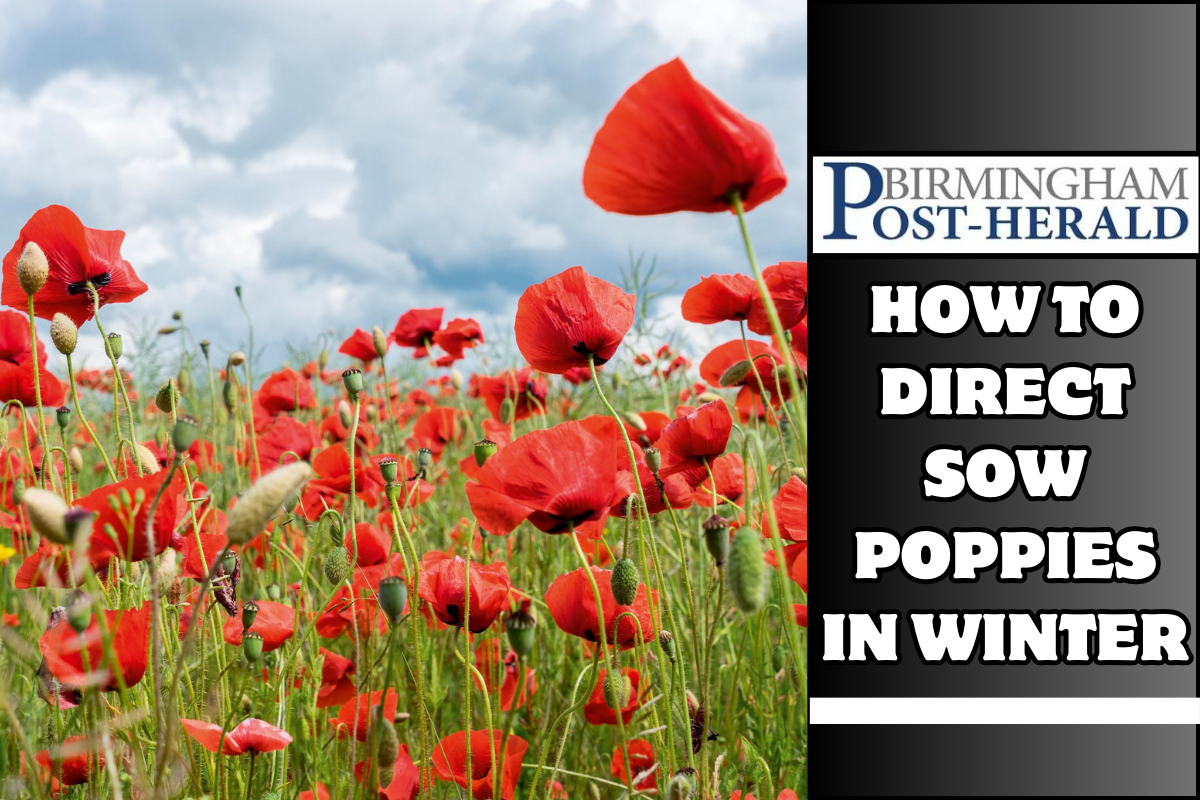How to Direct Sow Poppies in Winter:-It can be fun to plant poppy seeds directly in the ground in the winter so that you can enjoy the bright blooms of these lovely flowers come spring. From seeds, poppies are pretty easy to grow, and planting them directly in the ground in the winter gives the seeds the cold stratification they need to sprout.
How to Direct Sow Poppies in Winter
We’ll talk about how to successfully direct sow poppies in winter step by step in this help.
1. Selecting Poppy Varieties
- Pick out the kind of poppy seeds you want to plant first. The famous red Flanders poppy (Papaver rhoeas) is one type of poppy.
- Other types include the big, colorful Oriental poppy (Papaver orientale) and the delicate, cup-shaped California poppy (Eschscholzia californica).
- When choosing poppy seeds, you should think about your temperature, soil type, and the colors of flowers you want.
- Each variety has its own traits and needs for growth.
2. Choosing the Right Location
- Poppies do best in sunny places with dirt that doesn’t stay soggy.
- Pick a spot in your yard that gets full sun for at least six to eight hours a day.
- To make the best conditions for poppies to grow, make sure the dirt is loose, rich, and free of weeds.
3. Preparing the Soil
- To get the dirt ready in the chosen spot, break it up with a garden fork or tiller until it’s about 6 to 8 inches deep.
- Get rid of any rocks, weeds, or other trash in the dirt.
- To make the earth more fertile and help it drain better, add organic matter like compost or aged manure.
4. Cold Stratification
- To break dormancy and start sprouting, poppies need to be exposed to cold stratification.
- Winter is a great time to plant poppy seeds straight in the garden because the cold weather makes the process look a lot like this.
- Cold stratification makes it more likely that poppy seeds will sprout when the weather gets warmer in the spring.
5. Sowing the Seeds
If you want to plant poppy seeds in your yard during the winter, do these things:
- Spread the poppy seeds out over the top of the ready soil. To get the seeds to stick well, lightly press them into the dirt with your hands or a soft tamp.
- Do not bury the seeds too deeply, because they need light to grow. As long as the dirt or mulch doesn’t go too deep, it can help protect the seeds.
- Make sure the seeds are spaced out the way the instructions say to for the type of poppy you’re planting. Leave about 6 to 12 inches between the seeds to give them room to grow.
Also Read:-Onion Bhaji With Gram Flour Recipe- Learn Like a Pro
6. Watering and Maintenance
- Once the poppy seeds are in the ground, water it gently to keep it moist.
- Don’t water too much, because too much water can kill the seeds.
- In the winter, rain or snow may be enough water for seeds to germinate.
- Regularly check the level of wetness in the soil and water it as needed to keep it just slightly wet.
7. Protecting from Frost
- In places where it gets below freezing in the winter, you might want to cover young poppy seedlings from the frost.
- To keep the soil warm and protect plants from the cold, use frost cloth, row covers, or mulch. During the day, take off the covers to let air and sunlight in.
8. Spring Growth and Care
- In the spring, when the weather gets warmer, poppy seeds will start to come up from the ground. To support good growth, keep giving it enough water, especially when it’s dry.
- If necessary, thin out plants that are too close together to make sure they have enough space and airflow.
9. Fertilizing and Mulching
- Once the poppy seeds are well-established and a few inches tall, you can feed them with a balanced fertilizer to help them grow well and flower. Follow the directions on the package for a slow-release or organic fertilizer.
- Putting organic mulch around the base of poppy plants, like straw or shredded leaves, helps keep the soil wet, keeps weeds away, and keeps the soil at the right temperature. To keep the poppy seeds from suffocating, don’t put mulch right on top of them.
10. Blooming and Enjoying Your Poppies
- If you take good care of your poppy plants, they will grow and bloom beautifully in late spring or early summer, based on the type.
- Enjoy the bright colors and delicate petals of your poppy flowers, and if you want them to keep blooming all season, you might want to remove the spent flowers.
In conclusion, planting poppy seeds directly into the ground in the winter can be a fun and satisfying way to garden. In the spring and summer, the colorful blooms will make your garden look great. Follow these steps and tips to successfully plant poppies in the winter. Then, enjoy their beauty and charm in your yard.
